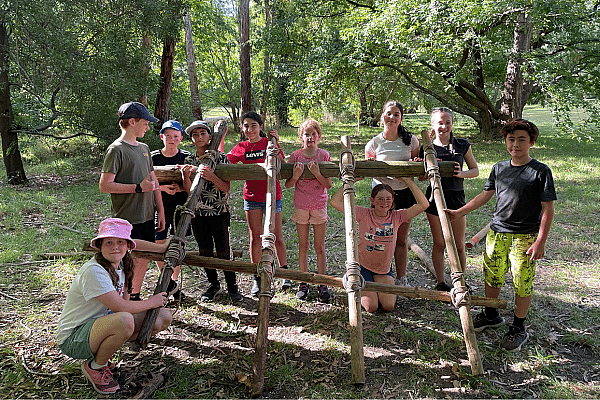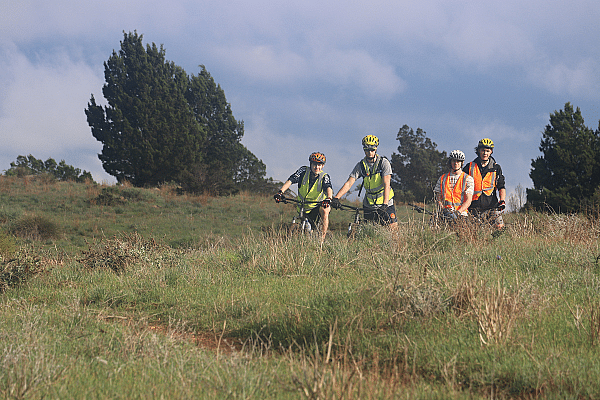18 Mar Benefits of Outdoor Education for Students in South Australia
 Outdoor education is essential to childrens overall development, providing them with unique chances for learning, growth, and experience. In South Australia, outdoor education has gained significant recognition and integration within the education system.
Outdoor education is essential to childrens overall development, providing them with unique chances for learning, growth, and experience. In South Australia, outdoor education has gained significant recognition and integration within the education system.
Understanding the concept of outdoor education – Outdoor education is a form of learning that takes place in natural environments, combining academic knowledge with hands-on experiences in the great outdoors. It goes beyond the confines of the classroom and provides students with opportunities to explore, discover, and engage with the natural world.
Importance of outdoor education for students Outdoor education plays a vital role in the holistic development of students. It offers a unique learning environment that fosters personal growth, enhances academic performance, promotes physical health, and cultivates essential life skills. By immersing students in nature and challenging them in various outdoor activities, it helps them develop resilience, confidence, and a deeper appreciation for the natural world.
Enhancing Academic Performance and Cognitive Skills through Outdoor Education Research has shown that outdoor education can have a positive impact on academic performance. Studies indicate that students who engage in outdoor learning experiences demonstrate improved problem-solving skills, enhanced creativity, increased attention span, and better overall academic achievement. The hands-on nature of outdoor education allows students to apply theoretical concepts in real-world contexts, resulting in deeper learning and retention.
Cognitive benefits of outdoor learning experiences Outdoor education stimulates cognitive growth in students by providing them with opportunities for critical thinking, decision-making, and environmental awareness. It encourages them to observe, analyze, and make connections between different elements of nature, thereby sharpening their cognitive abilities. Outdoor learning experiences also promote curiosity, self-direction, and a sense of wonder, fostering a love for learning that extends beyond the classroom.
Integration of outdoor education into the curriculum Recognising the numerous benefits of outdoor education, schools in South Australia have integrated outdoor learning into their curriculum. Outdoor education is no longer seen as an extracurricular activity but as an essential component of the educational experience. It is incorporated into various subjects, such as science, geography, and physical education, allowing students to apply theoretical concepts in practical, real-world settings.
Building self-esteem through outdoor challenges Outdoor education provides students with opportunities to face challenges, overcome obstacles, and succeed in unfamiliar and sometimes demanding situations. By conquering the physical and mental challenges presented by outdoor activities, students develop a sense of accomplishment and self-confidence. These experiences build resilience, boost self-esteem, and provide a solid foundation for personal growth.
Developing resilience and adaptability in outdoor settings Outdoor environments are unpredictable and often require individuals to adapt to changing circumstances. This fosters resilience and adaptability in students, enabling them to handle setbacks, persevere, and find creative solutions to problems. By experiencing the natural world firsthand, students learn to be flexible, adaptable, and confident in their ability to tackle whatever life throws at them.
Cultivating leadership skills through outdoor education Outdoor education offers numerous opportunities for students to develop leadership skills. In outdoor settings, students often need to work collaboratively, communicate effectively, and take on leadership roles. Whether it’s navigating through challenging terrains or planning and executing group activities, outdoor education encourages students to step up, take charge, and develop leadership qualities that will serve them well in their future endeavors.
 Benefits of physical exercise in natural environments Engaging in outdoor activities not only provides students with fresh air and sunshine but also promotes physical fitness. Research has shown that physical exercise in natural environments can lead to improved cardiovascular health, enhanced motor skills, increased physical endurance, and reduced stress levels. By encouraging students to be active outdoors, outdoor education contributes to their overall physical well-being.
Benefits of physical exercise in natural environments Engaging in outdoor activities not only provides students with fresh air and sunshine but also promotes physical fitness. Research has shown that physical exercise in natural environments can lead to improved cardiovascular health, enhanced motor skills, increased physical endurance, and reduced stress levels. By encouraging students to be active outdoors, outdoor education contributes to their overall physical well-being.
Outdoor activities for promoting physical fitness Outdoor education offers a wide range of activities that promote physical fitness and a healthy lifestyle. Students can participate in hiking, rock climbing, canoeing, team sports, and many other activities that get them moving and engaging with nature. These activities not only improve students’ physical health but also instill a love for outdoor recreation and encourage a lifelong commitment to staying active.
Connection between outdoor education and mental well-being Spending time in nature has been proven to have positive effects on mental well-being. Outdoor education provides students with opportunities to disconnect from technology, reduce stress, and improve their mental health. Immersing oneself in natural environments has a calming effect on the mind, improves mood, boosts creativity, and promotes a sense of well-being and connectedness to the world around us. Outdoor education serves as a powerful antidote to the pressures and demands of modern life, allowing students to recharge, rejuvenate, and find balance.
Collaboration and communication in outdoor education When students step outside the classroom and into the great outdoors, they are thrust into an environment that demands collaboration and communication. Whether it’s setting up a tent, navigating a hiking trail, or working together to complete a challenging group activity, outdoor education provides countless opportunities for students to develop their social skills. From learning to listen to each other’s ideas to effectively conveying their own thoughts, students can enhance their ability to work as a team and communicate effectively.
Problem-solving and decision-making in group activities Outdoor education also presents students with various group activities that require problem-solving and decision-making skills. Whether they’re faced with a tricky obstacle on a ropes course or working together to solve a navigation puzzle, students learn the importance of critical thinking and making informed decisions under pressure. These experiences in outdoor settings can prepare students for real-life situations where problem-solving and decision-making are essential.
Promoting empathy and understanding through team challenges Team challenges in outdoor education provide a unique platform for promoting empathy and understanding among students. As they face physical and mental obstacles together, students learn to support and encourage one another. They develop a deeper understanding of each other’s strengths, weaknesses, and unique perspectives. This fosters an environment of empathy and teaches students the value of working together as a team, no matter their differences.
Educating students about the natural environment Outdoor education offers a prime opportunity to educate students about the natural environment. By immersing themselves in nature, students gain firsthand experience and knowledge about ecosystems, biodiversity, and the delicate balance of our planet. They learn about the importance of preserving and protecting the environment for future generations.
It also encourages responsible behaviour towards the environment by instilling a sense of respect and appreciation for nature. Students learn to leave no trace, clean up after themselves, and minimise their impact on fragile ecosystems. These lessons in responsible behaviour help students become environmentally conscious citizens who take responsibility for preserving and protecting the natural world.

